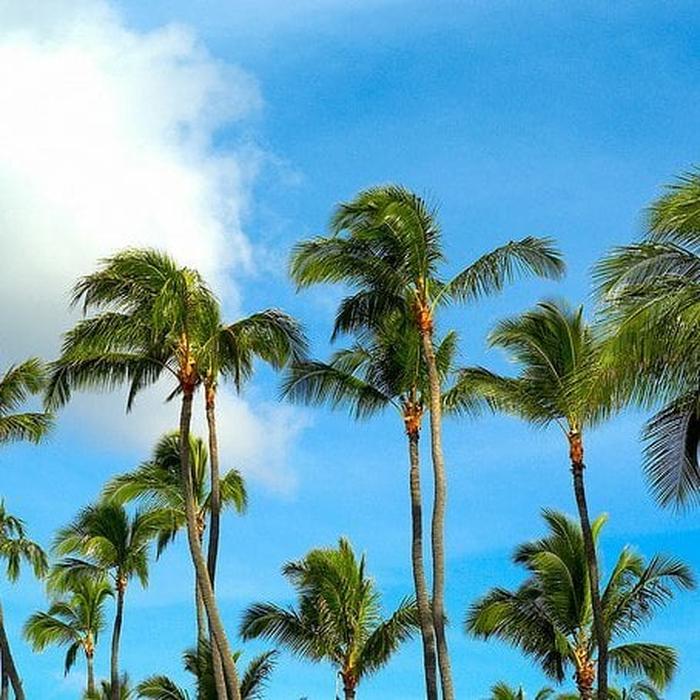
Telling people in South Carolina that I was moving to California evoked similar reactions: “You are going to fit in so well!” “That is so you!” “You would.” (And the occasional “Watch out for all those liberals!”)
And I was pretty excited, too. After all, I was convinced that moving to California meant turning my life into a years-long beach town vacation. My lunch breaks would consist of grabbing my surfboard and catching some waves. I’d survive on exotic vegan dishes like quinoa. When I returned to South Carolina for a visit, I would have to endure an unending flow of compliments on my bronze complexion. My friends would seek my counsel on the latest indie bands, to which I would sadly reply that without a record player, all was pointless, for they only released their albums on LPs.
My husband and I would lead a happy and trendy life in a constantly warm and relentlessly sunny town. Obviously.
At least I was right about the abundance of quinoa.
As I quickly came to learn, California is a huge place, and none of its diverse cities (and climates) can quite live up to my South Carolina expectation that it would be the best of Big Sur and Los Angeles combined. Particularly not the small Northern California college town of Davis, where I moved.
On my first visit here, I wondered skeptically at the endless farmland beyond the car windows. “And those are rice fields, and those—oh you’ll love those in the summer—sunflowers!” My husband excitedly identified each crop to me, while I realized I was going to have to trade in my vision of a Pacific Ocean paradise for the reality in front of me: a sea of produce. Didn’t seem like a fair trade.
And the culture shock didn’t end there. For example, I’m used to the simple concept of taking my trash and dropping it into the bin. Here, the trash cans are more like trash stations, with bins for everything from recycling to composting (complete with pictures of what qualifies for each category). I found myself overwhelmingly tempted to take my empty coffee cup and paper bag and just toss them until I noticed that the last bin wasn’t labeled “garbage,” “rubbish,” or “trash,” but “landfill,” complete with a horrifying picture of Mother Nature weeping (OK, it’s just a picture of a landfill, but still). So I spent the next five minutes guiltily matching my items to the ones displayed over each bin while making audible realizations like, “you can compost that?”
Other than trash sorting, my biggest adjustment so far has been transportation. Getting from A to B in Davis involves two wheels, not four. Biking sounds so classic, I know—a little scarf around your neck blowing in the wind on a sunny day as you pedal around town. My first few rides weren’t far short of that, either.
But as it turns out, winter is the rainy season in Davis. (California lesson #523: There’s a rainy season.) On the first proper rainy day, I protested with restless pacing for nearly an hour before grabbing a sweater, my “windwall” jacket, a pashmina, winter gloves, and boots. I pedaled two miles through the downpour to the heart of downtown where I locked my bike and hustled to the nearest awning.
And then I watched in amazement at what I saw: students happily bobbing along. No umbrellas, no scarves, no hustling as though the rain was made of acid. Just going about their days.
These students were under the same rain cloud as I was. Realizing that the wind gusts weren’t any harder or colder on my side of the street, I pondered at the mystery of their content. Glove warmers? Overcaffeination? Long johns? I couldn’t stop feeling the wet chill on my face and wondering what the secret was to avoiding it.
That’s when it hit me: You can’t.
For me, an East Coast transplant, this wasn’t the glorious California weather I had dreamed of. But for the locals, it was just life. Locals weren’t wasting their time staring at every forsaken raindrop falling from the sky; rather, I watched them enjoy the good in what they had—the smell of roasted coffee beans hanging in the air, the deep green of quenched oaks, listening to the happenings of their friend’s day. Now it’s not that every Californian is sincerely positive, but it was clear that they simply weren’t letting the seasonal weather rain on their parade.
I’m sure I will find all of this normal someday. But until then, I think the secret is this: until something—whether it’s a new place, a new culture, a new job—is normal, the only way to adjust is to keep an open mind. And keep up the optimism.
Since standing under that awning, soggy and mystified, I have since invested in a better rain jacket and a better attitude. I’ll admit the latter can still be hard to find some days—but I’m learning.